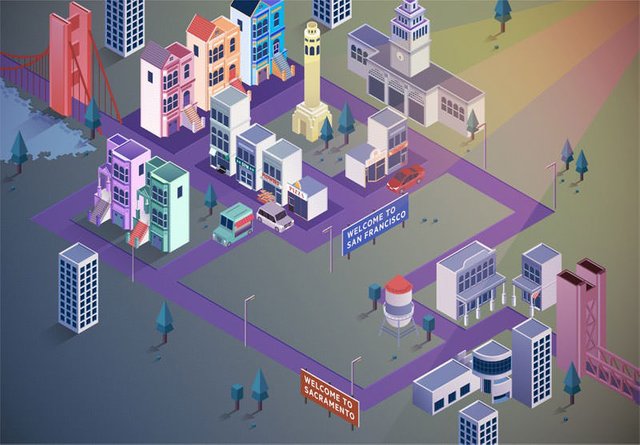The Uber Game
The Uber Game: if the smart economy is not a game

Would you survive working for Uber? The Financial Times has created The Uber Game, an interactive game in which to test yourself as a driver on duty for the famous ridersharing company. The player, in service in San Francisco, from time to time is called to choose how to behave in front of the many small choices that drivers have to face during their day of work. The potential dilemmas are infinite.
It is up to you to choose whether to stay on duty at profitable night-time hours or to return home where your family waits after days of absence. It is up to you to decide whether to rest, wasting precious time or continuing to drive, with the risk of causing accidents. We must face repairs to keep our cars in good condition and it is also a matter of smiling even for the most odious customers, in order not to receive a low rating and to lose potential customers. The balance between opportunities for gain and psychophysical well-being is very subtle. And in fact almost none of the players can finish the simulation having earned enough to survive and maintain their family.
In Italy Uber is almost non-existent, being an illegal service that actually competes with taxis.Elsewhere in the world, however, the system is much more widespread, especially in those countries where public transport is not very reliable and many can not afford a car. For many, it is an unmissable job opportunity: at the wheel of Uber's cars, it happens to meet the unemployed waiting to find a job suited to their profile, students trying to earn small amounts, people just arrived in a new city, kids at first use or trying to round up; even small family businesses, with parents and children taking turns at driving. Customers see the smiling face of the service, which in the few minutes of a race tries to put at ease by making conversation or letting the music to be listened to. However, over the course of a day, as shown by The Uber Game, there are many problems to be faced, all with a cost - economic and not. Costs are not always compensated by the gains obtained and indeed sometimes weighed by the final score, which affects both drivers and passengers.
The Uber Game uses an easy tool, that of the game, to show a little known aspect of the smart economy. Behind the performances that are fleetingly provided thanks to brilliant digital apps and systems - car passages, internet purchases, home deliveries - there are many unexpected and undesirable consequences, often surprisingly analog. The e-commerce boom generates large quantities of cardboard to be disposed of; the multiplication of home deliveries leads to an increase in road accidents; even bike sharing free floating bikes are likely to be in excess and generate problems of disposal. Opportunities until yesterday unthinkable are at our disposal with a single touch on the smartphone, it is true; but not without unexpected costs, as even a game can teach.
I too am highly critical of these kinds of services. The siloed management of resources is nothing new and it's centralization is generally something to be resisted, as it will always turn out to be an extractor of wealth.
I missed this, this is pretty cool, thanks for sharing.